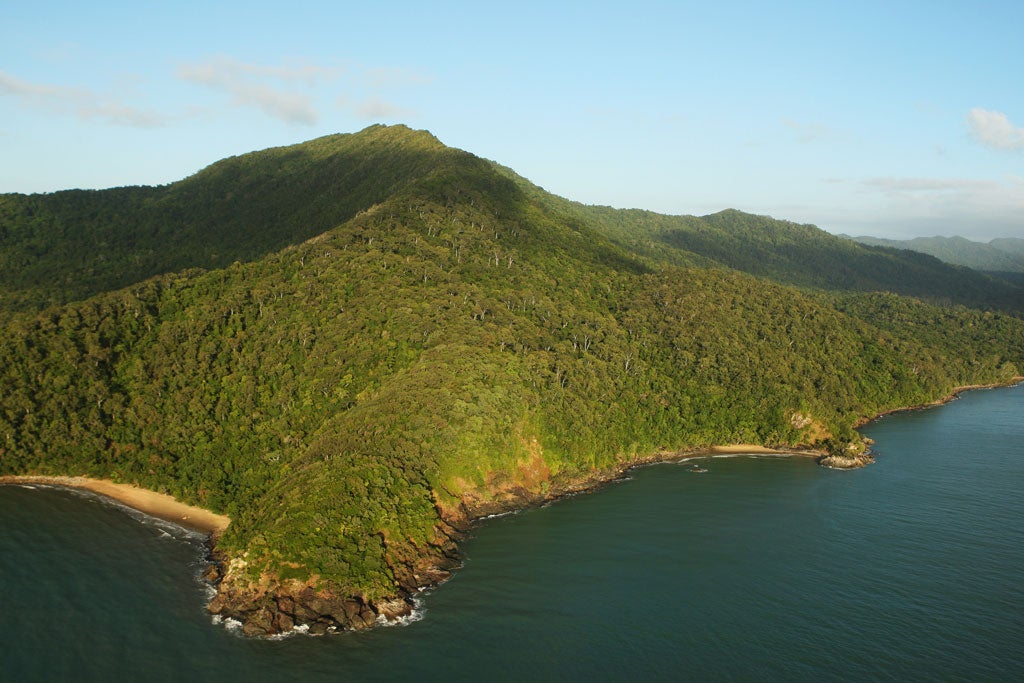World’s oldest tropical rainforest handed back to Aboriginal owners in historic deal
Deal covers part of a key World Heritage site and includes Daintree, Cedar Bay National Park, Black Mountain National Park, and the Hope Islands

Your support helps us to tell the story
From reproductive rights to climate change to Big Tech, The Independent is on the ground when the story is developing. Whether it's investigating the financials of Elon Musk's pro-Trump PAC or producing our latest documentary, 'The A Word', which shines a light on the American women fighting for reproductive rights, we know how important it is to parse out the facts from the messaging.
At such a critical moment in US history, we need reporters on the ground. Your donation allows us to keep sending journalists to speak to both sides of the story.
The Independent is trusted by Americans across the entire political spectrum. And unlike many other quality news outlets, we choose not to lock Americans out of our reporting and analysis with paywalls. We believe quality journalism should be available to everyone, paid for by those who can afford it.
Your support makes all the difference.Four national parks in Australia will be handed back to their Aboriginal owners, the Eastern Kuku Yalanji people, in a historic deal announced by the Queensland government on Wednesday.
It includes Daintree, the world’s oldest tropical rainforest, Cedar Bay National Park (Ngalba Bulal), Black Mountain National Park (Kalkajaka), and Hope Islands. Together, they cover an area of more than 160,000 hectares of land in north Queensland.
Before the full handover of the land, which stretches from the north of Port Douglas to the south of Cooktown, the original Aboriginal owners and the government will jointly manage it.
The agreement was signed on Wednesday by environment minister Meaghan Scanlon, aboriginal and Torres Strait Islander partnerships minister Craig Crawford and representatives from the Eastern Kuku Yalanji People in Bloomfield, north of Wujal Wujal.
“The Eastern Kuku Yalanji people’s culture is one of the world’s oldest living cultures and this agreement recognises their right to own and manage their country, to protect their culture, and to share it with visitors as they become leaders in the tourism industry,” Ms Scanlon said.
In April 2007, the Eastern Kuku Yalanji people were recognised as the traditional owners of the land.
“These national parks will protect important Aboriginal cultural sites, diverse ecosystems, including rainforests, woodlands, wetlands and mangroves, and form part of the Wet Tropics World Heritage Area, which is recognised as the second-most-irreplaceable World Heritage site on Earth,” the minister added.
The Queensland Conservation Council also recognised the global significance of the Daintree rainforest.
Andrew Piccone, the council’s protected areas spokesperson, said: “Returning these parks to the Eastern Kuku Yalanji is the best way to protect the area’s natural and cultural values.”
The transfer was supported by the Cape York land council, the North Queensland land council and the Wet Tropics management authority.
Chrissy Grant, a member of the Eastern Kuku Yalanji traditional owners’ negotiating committee, said the agreement closed four years of negotiations to jointly manage the parks.
“Our goal is to establish a foundation to provide confident and competent people with pathways and opportunities for mentoring, training, apprenticeships, work experience and employment for our Eastern Kuku Yalanji Bama [people] to fill positions from a wide range of skilled trades, land and sea management, hospitality, tourism and research so that we are in control of our own destinies,” she said.
She emphasised that the Eastern Kuku Yalanji people eventually want to solely manage the land.
The Daintree tropical rainforest is believed to be around 180 million years old and is near the Great Barrier Reef. It is part of the Wet Tropics of Queensland UNESCO World Heritage site and has been home to generations of Aboriginal people.
According to the Rainforest Rescue, an Australian nonprofit organisation, Daintree is home to 30 per cent of Australia’s marsupial species and 20 per cent of its reptile species.
Last week, the Queensland government also restored the name of the popular tourist destination Fraser Island to its traditional name, K’Gari.
Join our commenting forum
Join thought-provoking conversations, follow other Independent readers and see their replies
Comments